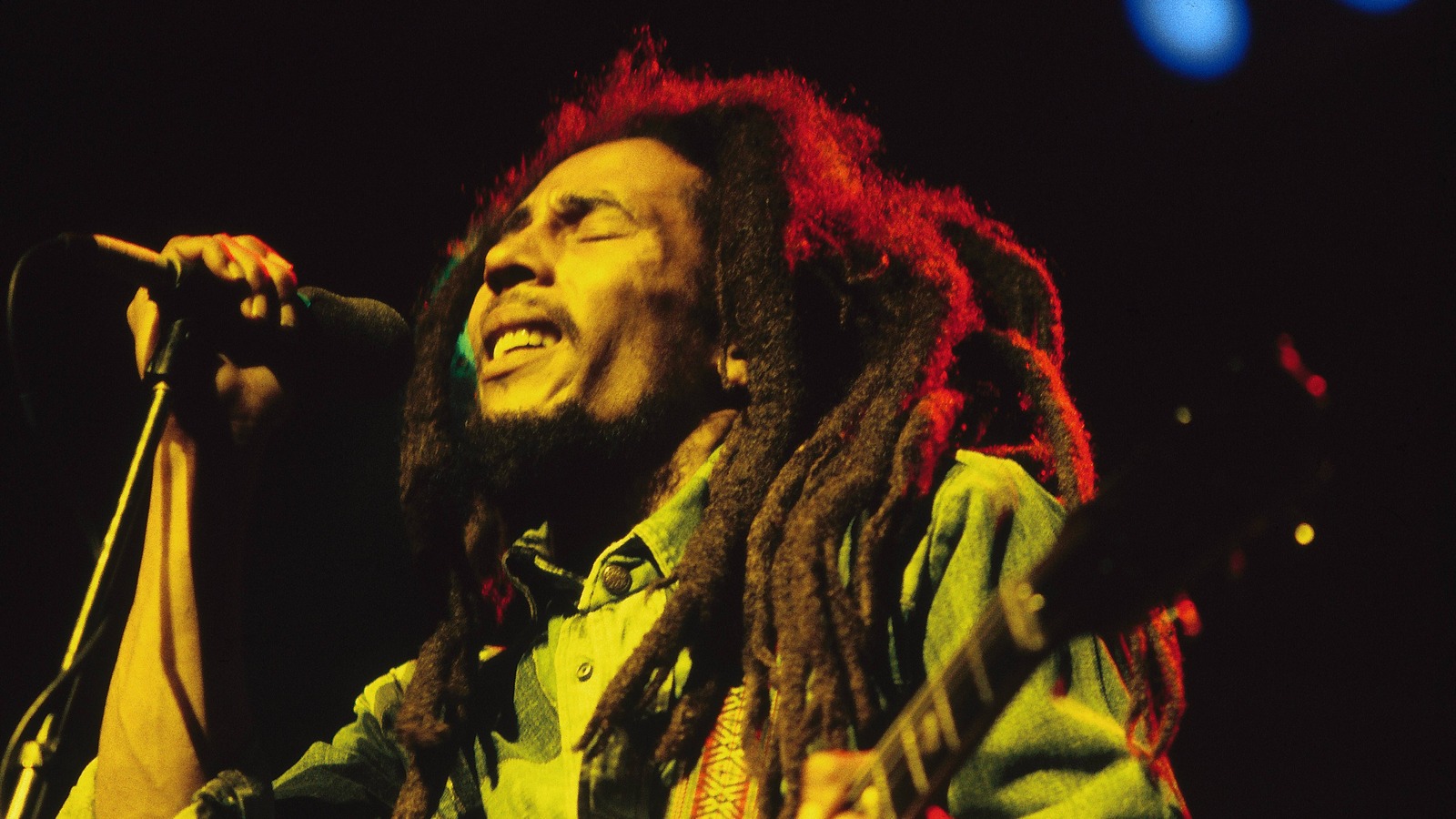
What Was Bob Marley’s Religion? – Grunge
Today Bob Marley is by far the most famous Rastafari convert in history. It is less well-known that at the very end of his life, he also accepted a Christian baptism from the Ethiopian Orthodox Church. This apparently reluctant end-of-life conversion has largely been forgotten, and the reggae singer’s legacy as a figurehead for the Rastafari faith has held strong.
Marley embraced the Rastafari religion as a teenager in Kingston thanks to his mentor, the singer Joe Higgs. This fairly modern religion, created in the 1930s, is poorly understood by outsiders in the West — but Marley’s music and lifestyle have shed light on it in the media. Even in Jamaica, where Rastafarianism was born, it remains a minority religion today, and the Jamaican government is unsure how many members there are. Jalani Niaah, a lecturer in Cultural and Rastafarian Studies from the University of the West Indies, told The San Diego Union-Tribune that around 8-10% of Jamaicans are part of the religion.
Rastafarianism was created out of a mix of Christianity and pan-Africanism, and it is still growing despite a history of discrimination. The ever-likable Marley made the Rastafari religion visible to the world by singing about his faith, combining soulful lyrics with the tinkling of steel drums in an irresistible combination.
Marley’s Rastafari faith
 Ralf Liebhold/Shutterstock
Ralf Liebhold/Shutterstock
From his dreadlocks to his dress sense to his appreciation for ganja, Bob Marley’s signature trademarks had their roots in the Rastafari religion. Rastafarians believe in “livity,” a code of conduct that offers adherents rules for a more natural way of living. It was this code that Marley stuck to for most of life.
Although the religion has a Christian basis, Rastafaris believe that the King James version of the Bible has been corrupted and simply tells half-truths. Followers embrace some Christian tenants, but they have an essentially mystical understanding of god and seek a personal relationship with the “jah” (divine consciousness) through religious experience. One way they do this is through smoking marijuana, as well as prayer and meditation. While there is a stigma attached to the drug, it would be wrong to write the religion off as hedonistic. As part of their lifestyle, followers maintain a strict vegetarian diet, reject hair grooming (hence the dreadlocks), and wear the symbolic colors of red, green, gold, and black.
Marley put many ideas from his religion into his lyrics. Founded by the descendants of slaves, Rastafarianism preaches that many Africans went through a spiritual test by being sold into slavery. It encourages “exiles” to return to “Zion” — Africa — as part of their salvation. Marley often sang about Zion — “The Zion train is coming our way/Oh, people, get on board!” — as well as Babylon, the corrupt and oppressive modern world in which exiles are stranded.
Marley’s baptism
 Amde Trust/Getty Images
Amde Trust/Getty Images
For the Rastafari, Ras Tafari — the man crowned Emperor Haile Selassie of Ethiopia — was a divine entity, and the fulfillment of a prophecy that a Black king would be crowned in Africa. But Ethiopia is also a powerful symbol for those with pan-African ideals more generally — it has ancient Christian roots and was never fully colonized by the Western powers, making it unique among African nations. The country had deep spiritual significance for Bob Marley, who visited sites connected to the Ethiopian emperor in the late ’70s.
Seriously ill with cancer in 1980, Marley’s Christian mother pushed him to undergo a Christian baptism in the Ethiopian Orthodox Church before his death. According to David V. Moskowitz’s “Bob Marley: A Biography,” the singer was reluctant to do this and objected that his Rastafari faith clashed with the church’s principal tenants. Nonetheless, he eventually gave in. He was given the Christian name Berhane Selassie (“Light of the holy trinity”) and underwent baptism on November 4, 1980.
As a result of Marley’s questionable near-death conversion, his funeral wound up being an unusual affair. Although it was conducted by the Ethiopian church, The Guardian reports that the Rastafarian religion was well-represented. Despite some objections, one of Marley’s friends, a committed Rastafarian, read two much-loved Rastafarian biblical sermons to the crowd. Before the close of the service, the Rastas present were rebuked in public by the archbishop.
























![Keto Ozempic Gummies Reviews [Beware Exposed 2023] Watch Keto Ozempic ACV Gummies Side Effects? Keto Ozempic Gummies Reviews [Beware Exposed 2023] Watch Keto Ozempic ACV Gummies Side Effects?](https://i0.wp.com/images.mid-day.com/images/images/2023/jun/Keto-Gummies-1906_d.jpg?fit=300%2C300&ssl=1)





























